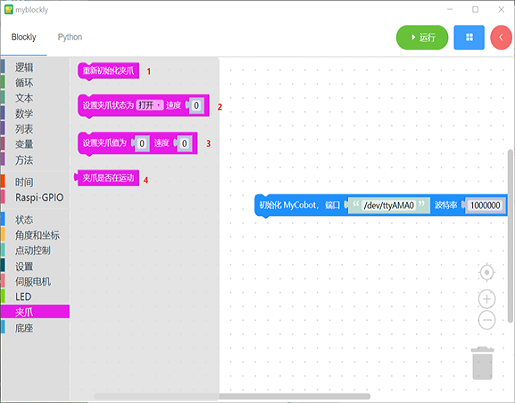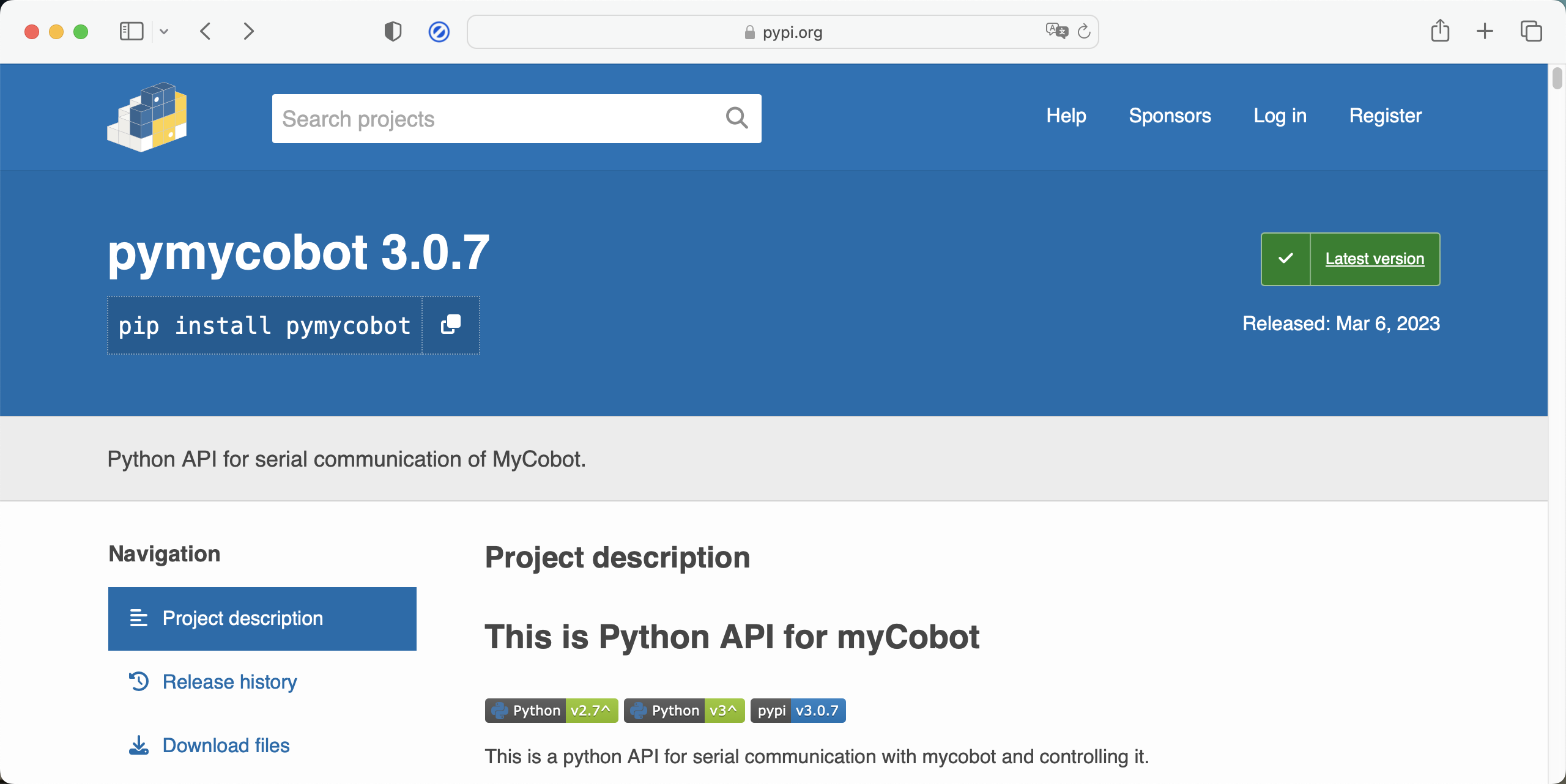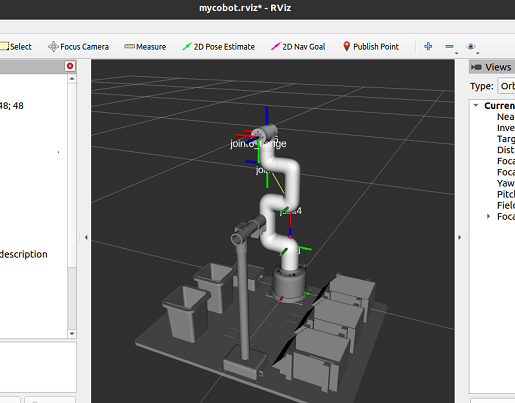Development Environment Construction
1 Using Environment
myCobot 280 for JETSON NANO version comes with Ubantu (V-18.04) system, built-in Python, myStudio, myBlockly, ROS, OpenCV and driver libraries, so there is no need to download development software and install development environment (additional Python libraries need to be installed by yourself), You only need to prepare a monitor to connect the robotic arm.
2 Development Environment
myCobot 280 JETSON NANO has a built-in development environment, which can be used directly.
Here are the development environments supported by myCobot 280 JETSON NANO. Read to download and install.
- 2.1 Development based on myBlockly and UIFlow, which are both graphical programming software and visualization tools. Users can create programs dragging modules, the process of which is very similar to building blocks. After installing myblockly and UIFlow , refer to myblockly use cases and UIFlow use cases.

2.2 Development based on Python. Our robots support Python and the development of the Python API library has become increasingly complete. The joint angle, coordinates, gripper and other aspects of the robot can be controlled via Python. Refer to installing the python environment , for more information.

2.3 Development based on ROS. ROS is open-source and is a post operating system, or secondary operating system, used for robot control. With the use of ROS, the simulation control of the manipulator can be realized in the virtual environment. The robotic arm can be visualized through the rviz platform, and operate the robotic arm in a variety of ways. It can also be used to plan and execute the robotic arm's action path through to freely control the robotic arm. After installing the ROS development environment , refer to use cases and use of moveit for more information.

3 Updating Firmware
The basic firmware of myCobot 280 JETSON NANO and the update of Atom firmware need to be updated via myStudio. MyCobot 280 for JETSON NANO has built-in myStudio, which can be used directly.
Go to the address below for more information about myStudio: